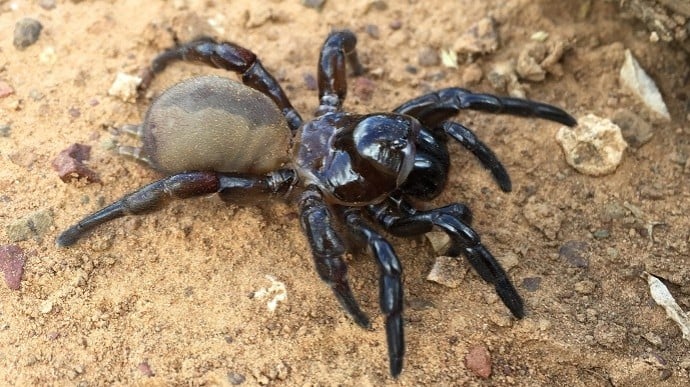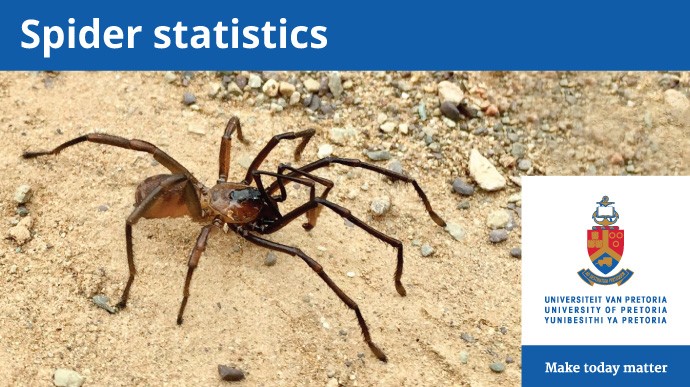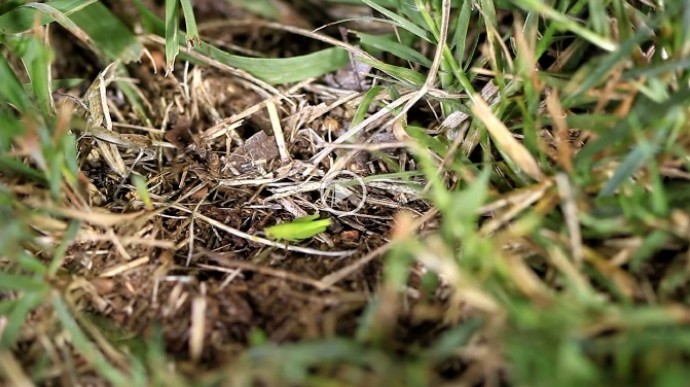The Mnisi Community Programme (MCP) is a component of the Faculty of Veterinary Science’s field based One Health Platform. The MCP is an international platform for integrated teaching, learning, research and community engagement at the interface between livestock and wildlife in South Africa.
The MCP’s core vision is on the livelihood upliftment of the Mnisi community, which is located in the north-eastern corner of the Bushbuckridge Local Municipality, Mpumalanga is classified as one of South Africa’s 14 rural poverty nodes. The programme realises its vision through multidisciplinary collaboration and mutually beneficial partnerships that are focused on evidence-based health improvements (environmental, animal and human). The areas of focus are research, capacity building and interventions for the promotion of a healthy and sustainable environment, animal and human populations at the interface between conservation systems. Through the different initiatives within the MCP, there has been considerable progress in the areas of skills development and job creation in the Mnisi community.
The MCP looks specifically at conservation through the eyes of the community. A main objective of the programme is to increase the livelihood security and sustainability of the rural people of the area. All the avenues of the programme, which include research, teaching and learning and community engagement, are conducted within the One Health philosophy of the Faculty. The principle of Research into Use promotes the development of this resource-poor community. Research areas include disease ecology and emergence, zoonotic diseases, livestock production and trade and the utilisation of natural resource.
The Faculty is fully aware of the fact that the One Health concept offers the only way to tackle the complex health-related challenges at the interface between wildlife conservation and livestock production systems is through the One Health concept and is committed to its role in the development of the concept within the Southern African Development Community (SADC).
The One Health Global Network defines One Health as ‘[the improvement of] health and well-being through the prevention of risks and the mitigation of effects of crises that originate at the interface between humans, animals and their various environments.’[1]
The Bushbuckridge Municipal Area was a perfect place for the Faculty to start this development. In the years prior to the introduction of the programme in 2008, Professor Nick Kriek, a former Dean of the Faculty and then Director of the Centre for Veterinary Wildlife Studies, started building a relationship with the Chief of the Mnisi Traditional Authority. Plans to re-establish the Hans Hoheisen Wildlife Research Station (HHWRS) at the Kruger National Park (KNP)’s Orpen Gate as a research base for the Faculty to support transfrontier conservation areas’ development, prompted the decision to involve the community closest to the station and developed the programme. The particular MCP study area was chosen because of 1) its proximity to HHWRS, 2) the fact that the community recognised and was open to the mutual benefits of a Faculty-community partnership, and 3) the fact that 75% of its boundary is at the wildlife–livestock interface between communal livestock areas and various provincial and private game reserves – most of which are part of the Greater Limpopo Transfrontier Conservation Area (GLTFCA). Geographically the Mnisi community is located adjacent to the GLTFCA, which is made up of the Greater Limpopo Transfrontier Park (GLTP), which is an amalgamation of South Africa’s KNP, Zimbabwe’s Gonarezhou National Park and the Limpopo National Park in Mozambique, as well as associated protected areas and communities. Because the community’s close proximity to areas inhabited by wildlife, the humans and their animals, as well as the wildlife, are all at risk of contracting infectious diseases such as foot-and-mouth disease and bovine tuberculosis. The Mnisi community soon realised that a close relationship between UP and the Mnisi would be mutually beneficial and a close and increasingly strong relationship developed between them.
Jacques van Rooyen, currently the Co-ordinator of the MCP, was the first PhD student in the MCP. Using the One Health concept as a guide, his own research and the work of those alongside him paved the way for the establishment of the programme and led to an understanding of the full spectrum of this complex system consisting of both conservational and socio-economic elements. Over the first five years the programme supported over 60 postgraduate projects, with both local and international students coming from diverse disciplines. Projects include ecological and anthropological focus areas and the initial idea for the programme to be a multidisciplinary one has certainly been realised.
Students who conduct their research in the area are able to use the HHWRS as a research base. The HHWRS is managed by the Faculty, in collaboration with Peace Parks Foundation and the Mpumalanga Tourism and Parks Agency. In addition to receiving essential support for research and training, researchers also have access to laboratories, and accommodation is available.
The MPC not only offers research opportunities to students, but has a strong focus on growth and practical experience for both the students and the rural community in the area, which has benefited greatly from its activities. The Hluvukani Animal Clinic, which opened its doors in 2009, forms part of final-year veterinary students’ clinical rotation and rural outreach. Students are expected to run the clinic and service the community under the supervision of a resident clinician, and the do so very successfully. Two ambulances service the surrounding area daily and apart from giving students valuable in-field experience, these trips also make it possible to control diseases, including zoonotic diseases. The clinic is run as a joint venture between UP and the Mpumalanga Veterinary Services.
The MCP has a strong focus on ways in which the lives of the local community can be improved in a sustainable way and is committed to working intensively with community members to equip them with important skills from which they can benefit. Van Rooyen and his colleagues have trained members of the local population to do community liaison work and to help run the clinic, and many have even been trained in a range of scientific methods such as animal identification and record- keeping, several sampling techniques, arthropod and small-mammal collection and trapping, as well as vegetation surveys. So far 11 community members have become UP employees, which benefits both the community and University research. The programme will also be increasing their local work capacity in the area in the course of this year.
Van Rooyen, who contributed significantly to the programme’s formidable growth, said, ‘We don’t just want to do research. Our research must also contribute to the community, not just through our scientific findings, but also through community engagement’. He expressed the opinion that researchers in South Africa need to challenge themselves to look beyond their areas of study to a place of lasting impact. The MCP research has done just that.
Van Rooyen encourages researchers to ask themselves what they can do in their areas of study that will not only contribute research, but will give people hope, which is something we desperately need to successful build our nation. The unique-in-the-world MCP is truly special in terms of both community engagement and research and holds great promise. Exciting new projects are also in the pipeline, so watch this space for more information on the MCP.
[1] The One Health concept: http://www.onehealthglobal.net/what-is-one-health/
Jacques van Rooyen
May 4, 2015
 Story
Story
Nine new trapdoor spider species have been discovered in the Great Karoo by researchers at the University of Pretoria’s (UP) Department of Zoology and Entomology, and the Agricultural Research Council (ARC).
 Infographic
Infographic
Trapdoor spiders hide in underground burrows that are covered with a cork-like lid made of soil, silk and plants. Learn more about trapdoor spiders with this infographic.
 Video
Video
Watch carefully to see how a trapdoor spider catches its prey through its trapdoor.
Copyright © University of Pretoria 2024. All rights reserved.
Get Social With Us
Download the UP Mobile App